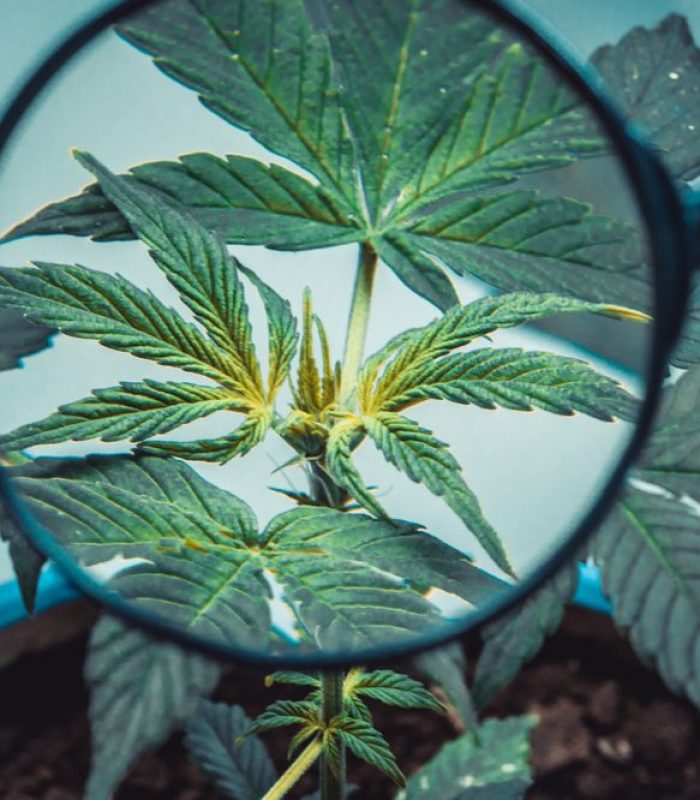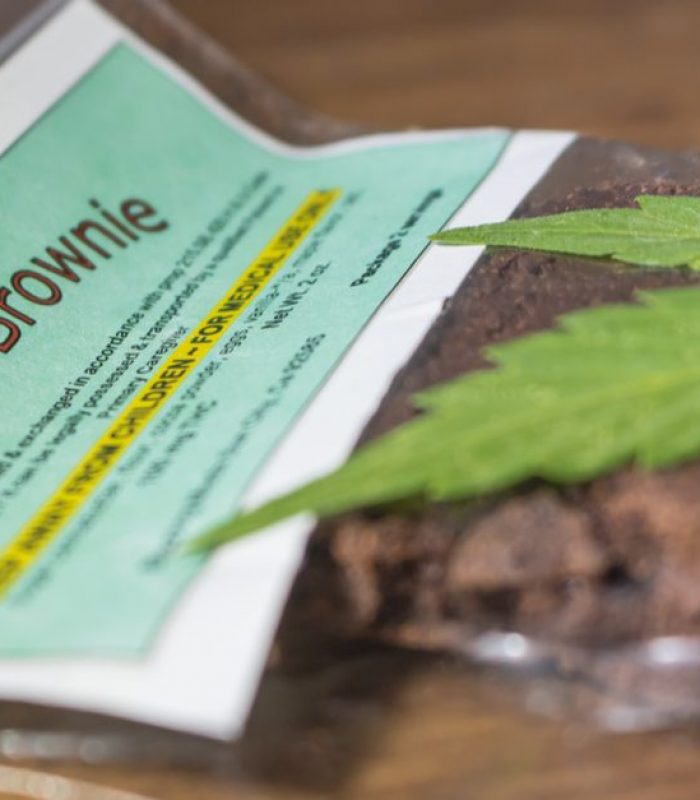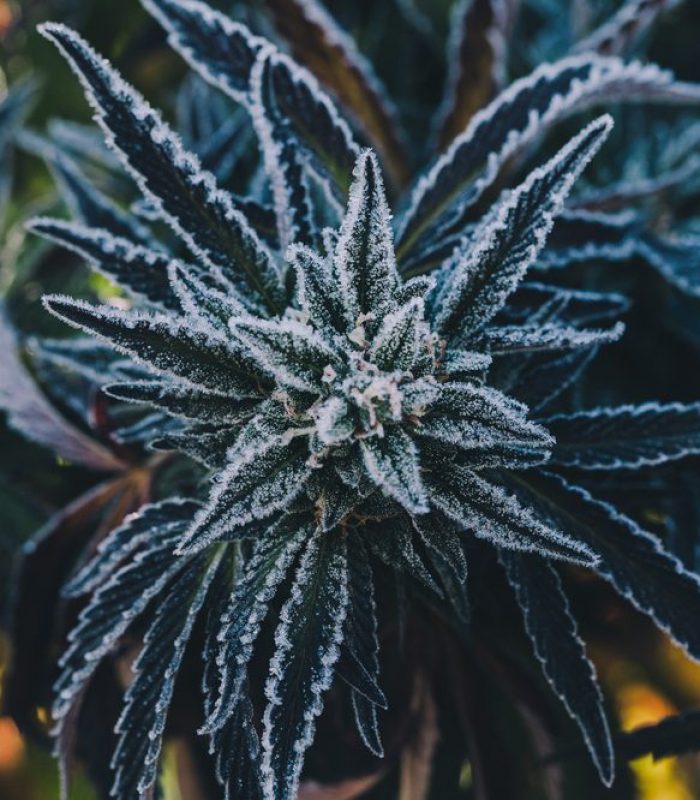Are edibles dangerous? The short answer is, ‘no’ and here’s why.
Edibles are defined as any food or beverage that contain cannabinoids. These are made by decarboxylating cannabis and infusing into a fat (such as butter, ghee or oils). Combining cannabis bud with fat is necessary so that your body can metabolize cannabinoids via oral consumption. You can then use the cannabis-infused butter in any baking recipe as it calls for (1:1 ratio).
Edibles have distinct differences to vaping or smoking bud. For one, the medicinal effects are longer lasting and, when made correctly, easier to consistently dose. However, edibles can also be much more powerful and take a little longer to kick in. Patients generally use a combination of smoke/vape for fast relief and edibles/oils to last through the day.
It is generally accepted that edibles are the safer option, primarily due to the fact that these do not expose consumers to the harmful byproducts of combustion. Is this accurate?

Edibles-Related ER Visits on the Rise
After Colorado legalized cannabis, local medical professionals noticed an interesting pattern. The majority of emergency room visits for smoking cannabis, but those who actually ate cannabis had a higher likelihood of experiencing more severe side effects.
Of the 2,567 cannabis visits to the University of Colorado Hospital’s ER in Denver between 2012-2016, just 9 percent of these cases were due to edibles. While 9 percent may not seem like much, these cases more frequently involved short-term, severe psychiatric symptoms. Moreover, a higher percentage of edibles consumers experienced anxiety and/or psychosis, compared to smokers.
Are “Dangerous Edibles” Sending People to the E.R.?
Among the ER visitors who had consumed edibles, 8 percent of them had symptoms like irregular heartbeat or even arrhythmia. Can cannabis cause heart attacks? Not directly. Cannabinoids, such as THC, have never been shown to induce a heart attack per se. Other substances and underlying health conditions are factors much more likely to cause a heart attack, rather than cannabis itself. Yet, the anxiety and respiratory depression, as well as increased heart rate, that too much cannabis may have exacerbated other underlying health concerns.
Smoking cannabis wasn’t without its troubles. Stats show that gastrointestinal distress is associated with 32 percent of smoking ER cases, compared to 15 percent of edible cases.
It’s important to remember that these statistics represent a correlation. Correlations tell us about what might be true, but they don’t necessarily tell us what is true (causation). This is a subtle but important distinction. Regardless, the difference between smoking and edible consumption is significant enough to warrant further investigation into how smoking and eating cannabis affects the body differently.

Are Edibles Stronger Than Smoking Cannabis?
It’s pretty much impossible to die from cannabis toxicity. There is a lethal dose, but it is not achievable by any human. One would need to smoke 15 pounds of cannabis within 15 minutes to die from cannabis. Even then, you would die from the byproducts of combustion before suffering from any sort of cannabinoid toxicity. But, just because you can’t die from cannabis, that doesn’t mean you can’t consume too much. For example, some consumers may experience therapeutic effects for their anxiety with a small amount of edibles, while a large THC-heavy edible will exacerbate their anxiety.
Side effects, such as anxiety, may be more common in edibles because there is no standardized regulation on what a single dose of cannabis should be. Furthermore, it takes a while to feel the effects of edible cannabis, which may lead to one over-consuming an edible. If you don’t feel anything right away, you may be tempted to eat more before they feel the intoxicating effects kick in.
The Body Metabolizes Edibles Differently Than Smoked Cannabis
Edibles will generally cause stronger psychoactive effects, as well as a longer lasting peak duration of these effects (up to 4-10 hours).
Both smoking and eating cannabis supplies the body with the psychoactive cannabinoid THC. However, when a patient consumes edibles, a greater proportion of Delta-9-THC makes its way to the liver first. Delta-9-THC converts into 11-hydroxy-THC in the liver. Smoking cannabis results in a lower ratio of 11-hydroxy-THC to Delta-9-THC. Edibles result in a higher ratio of 11-hydroxy-THC to Delta-9-THC, which is the reason people report such intense effects from edibles.
One’s genetics also affect how they metabolize cannabis, and this plays a role in their response to edibles. According to Dr. James MacKillop, the director of the Centre for Medicinal Cannabis Research, the way a person metabolizes THC depends on the enzyme CYP2C9. There are genetic or environmental factors that can cause higher levels of this enzyme. Higher levels may accelerate THC metabolism, and intensify its effects.
Different CYP enzymes in the liver metabolize both CBD and THC. THC’s psychoactive effects in edibles may not be benefit for all people, but an edible high in CBD could be perfect.

Adverse Effects due to Medicine Interactions
As with every medicinal product, interactions between medications are possible. Cannabis can interact with certain medications, such as anti-psychotics, and cause side effects. The way that the body metabolizes edibles can also determine how THC and CBD interact with medication. For example, CBD can have negative interactions with anticoagulants (medicine that prevents blood clots).
There are also positive drug interactions. According to a meta-analysis, cannabis is an opioid-sparing agent. Studies have shown cannabis may help reduce withdrawal and opioid dependence. In other words, the way that cannabis pairs with opioids can reduce prescriptions and improve pain management.
So, Are Edibles Dangerous Or Healthy?
Edibles aren’t dangerous for most people, but they can cause problems for some if taken in large quantities. Edibles can also potentially negatively interact with certain medications. Everyone is going to experience different effects after consuming an edible.
The first thing you should do is make or buy a low-dose edible. Try half a dose and wait an hour. Note the effects. If you don’t feel anything, finish the dose and see how it interacts with your body. After all, the rule is to start low and go slow, right? Keep water and food nearby – especially spicy food, which can counteract cannabis hyperemesis syndrome.
Trial and error, as well as starting small, are the keys to finding what works best for you.





